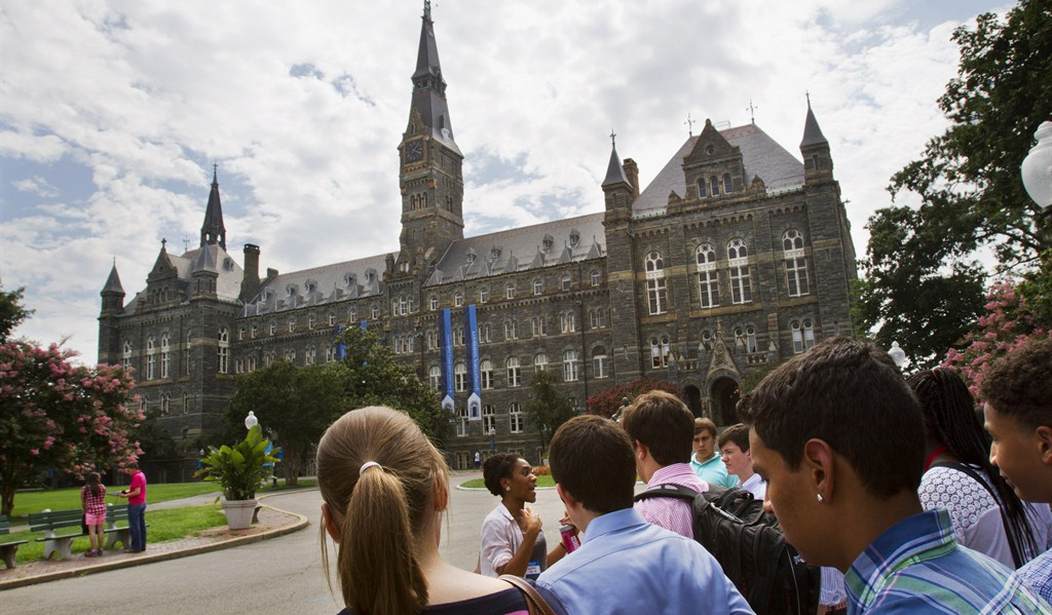Editor’s note: This column was co-authored by JD King.
A comprehensive new report from the National Association of Scholars (NAS) criticizes 685 higher education institutions for blindly subscribing to the sustainability movement and pushing students towards uncritically accepting important scientific notions, such as dangerous anthropogenic climate change.
The report itself does not take a position on man-made climate change, but blasts colleges and universities for distorting higher education and imposing harmful, anti-intellectual limits to the “freedom of students to inquire and to make their own decisions.” In other words, what they are saying is that students are exposed to an unsustainable amount of “sustainability” dogma!
While ranks of students are becoming sustainable bobble-heads, many are taking it a step further and are turning into radical environmental activists and advocating—in the name of “sustainability”—the elimination of all their respective institution’s investments in fossil fuels. This is known as “divestment” and is a growing influence on campuses across America.
What is the purpose of higher education, anyway? Is it to obtain a good job? Some would say so. But a student can gain basic technical skills at a community college, online, or by hands-on experience working under a trained professional.
No, what makes continuing education important, worthwhile even, are the fundamentals. Fundamentals that will not only help you get a better job, but that are of significant worth in and of themselves. Things like learning to learn, learning to think, learning to examine, analyze, dissect, and ultimately to make value judgements based off those skills, as well as having the right and privilege to speak those value judgements.
Recommended
College’s and Universities bring people together in an environment that, using these fundamentals, fosters creative discussions that lead to innovation, creativity, and, ultimately, well-rounded, well-educated citizens.
If that’s the goal of higher education, how can the sustainability and divestment movements thrive on college campuses? They shouldn’t be able to!
While masquerading as champions of the natural environment “sustainability” advocates have destroyed the educational environment that leads to the free exchange of ideas and that have made students truly think through what they believe. Students are no longer students, but are morphing into community organizers ready to uncritically accept and promote whoever’s agenda about whatever.
One example of the unthinking acceptance of sustainability is the complete lack of cost transparency. Environmentalists have for years demanded that free-market capitalists account for the total cost of a product “from cradle to grave,” and yet they hypocritically can’t even guesstimate the cost of their sustainability initiatives. The NAS report uses Middlebury College as a case study on the costs of sustainability, the results of their study are staggering. Middlebury had drastically understated the cost, and overstated the benefits of their program. The cost at Middlebury is in the tens of millions if dollars, and that cost will only increase.
What value is being added by that cost? Not much. The earth isn’t about to go through a human caused apocalypse due to CO2, so we can throw that value out the window. (Yes, we’re serious, the apocalypse was canceled). They’ve hired more employees to run their sustainability programs, but that money and those employees could be used elsewhere with higher value.
Colleges and Universities are basically wasting money on an ideology while ignoring their core mission; unfortunately for them, they may not be able to stay in business with such lousy financial practices.
The cost of higher education has gone up significantly over the years. In the 2011-2012 academic year, “annual current dollar prices for undergraduate tuition, room, and board were estimated to be $14,300 at public institutions, $37,800 at private nonprofit institutions, and $23,300 at private for-profit institutions.” 40 Million people in the United States have student loans averaging $25,000-$30,000 per person.
Costs are continuing to rise, and students are looking for other ways to get an education. Community College enrollment has grown, and online courses are more and more seen as viable options. Many smaller institutions have seen drops in enrollment of up to ten percent, and some people are predicting that half of all institutions of higher learning will shut their doors in the next 15 years.
Is now really the time for a university to lose millions on sustainability and fossil fuel divestment?
America, you must do better. This is unsustainable.
J.D. King is a filmmaker who produced the documentariesCrying Wolf andBLUE, exposing the poor science and ethics of the Green movement. He is a contributing writer for The Cornwall Alliance for the Stewardship of Creation.

























Join the conversation as a VIP Member